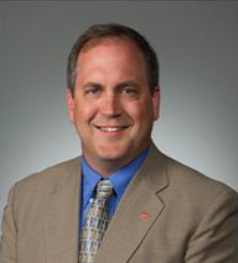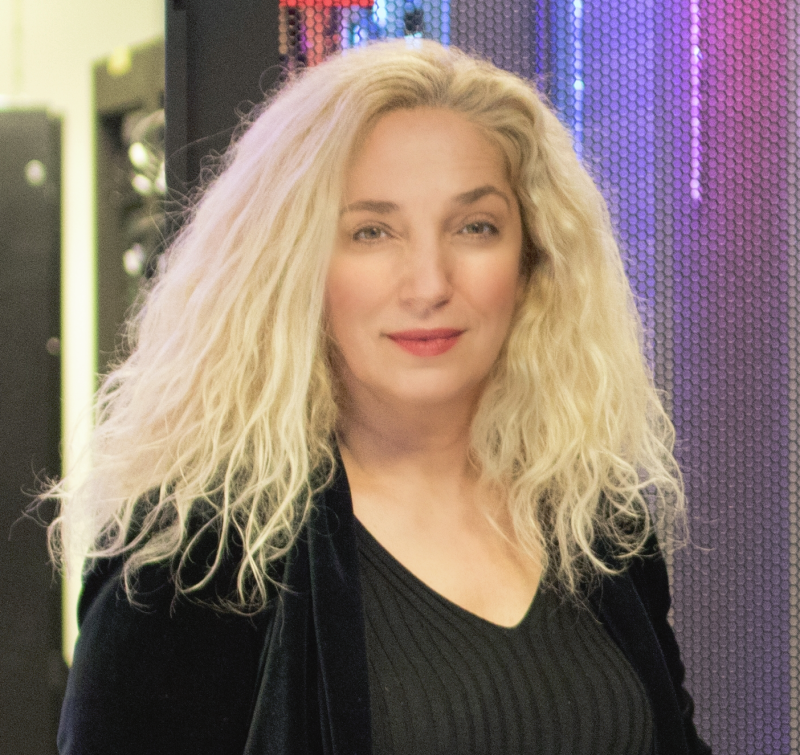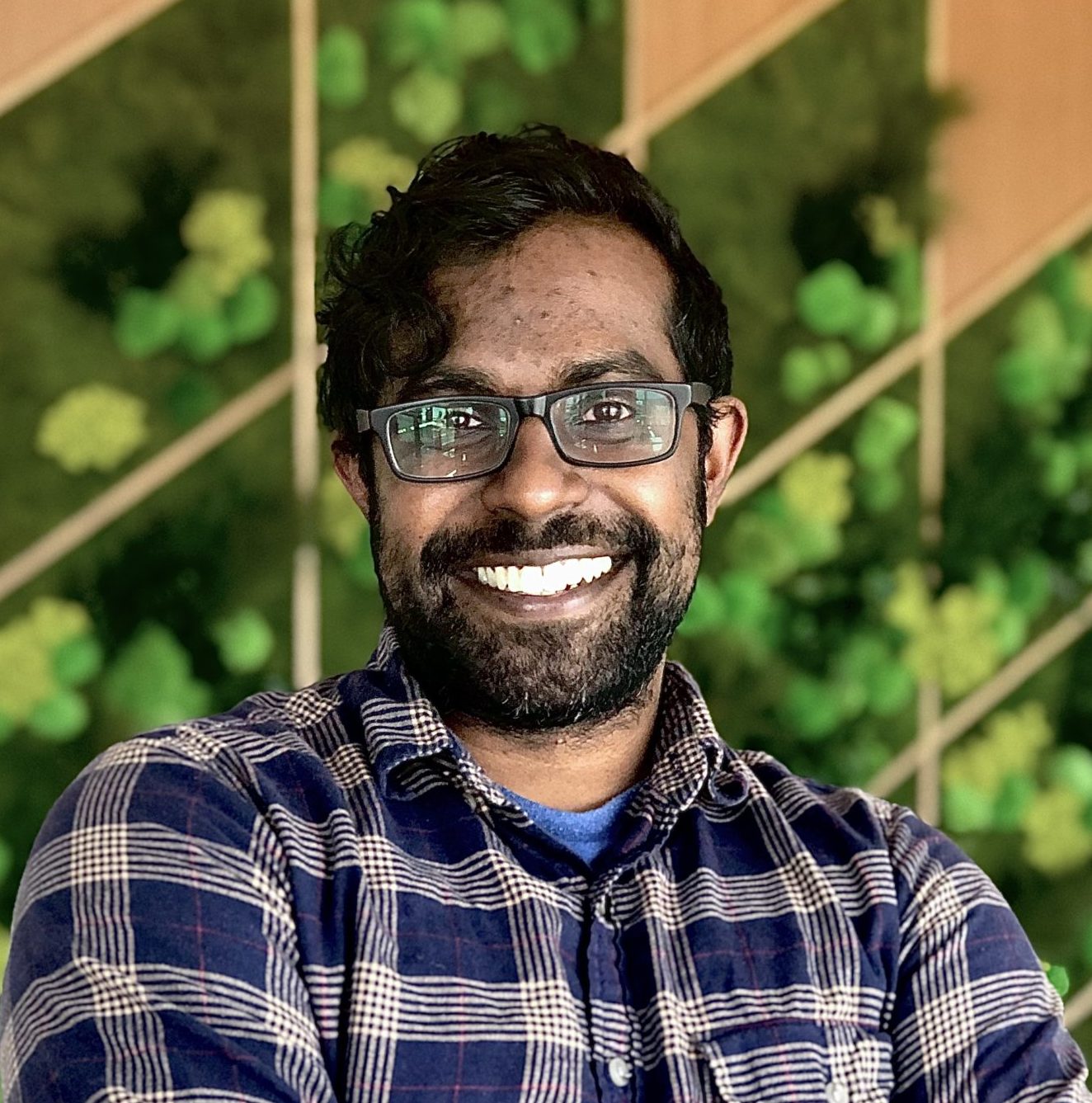Thursday, July 22, 2021
Senthil Annamalai
Research Operations & Automation Manager, Pivot Bio
Senthil Annamalai leads the Research Operations and Automation function at Pivot Bio. He is supporting lab and greenhouse operations across multiple research teams and facilities. The Research Operations and Automation function assists Strain Optimization, Analytical Chemistry, Genomics, QA/QC, Plant Assay, and BioProcessing/Fermentation functions with automated hardware and data handling support. Pivot Bio currently has lab and greenhouse operations in five locations in three states, in addition to the various agronomic operations and trials across the country.
Prior to Pivot Bio, Senthil was assisting life sciences organizations automating and scaling their workflows as a consultant.
Senthil started his career at Amyris in 2007, where he assisted in constructing various microbial strains for commercial high-value chemical production. Starting in 2009, Senthil was the primary designer of the automated workflows and methods, working with the research, automation, and software stakeholders to build one of the earliest and most sophisticated automated high-throughput microbial strain engineering platforms in the Synthetic Biology space.

Patrick Homyak, Ph.D.
Scientist III, Zymergen
Dr. Pat Homyak graduated from the UMass Amherst Polymer Science & Engineering program where he synthesized and characterized conjugated polymers for organic photovoltaics. After graduation, Pat started his career at Intel as a Process Engineer in IMO (Intel Mask Operations). Looking to move back towards a research career path, he came to LBNL, working on polyelectrolyte materials for fuel cell applications. Given the opportunity to help build Zymergen’s Research & Technology (R&T) team, Pat decided to move back to industry. At Zymergen, he designs and synthesizes new polymers for Films applications, where we explore and evaluate new biomolecules that provide novel performance benefits across our application space.

Hemanth Jagannathan, Ph.D.
Principal Research Staff Member & Hardware Technologist, IBM Research
Ph.D., Electrical Engineering, Stanford University
Dr. Hemanth Jagannathan is a Principal Research Staff Member and Hardware Technologist at IBM where he conducts research on advanced semiconductor hardware technology. Dr. Jagannathan has driven many key technical advancements for several generations of semiconductor technologies ranging from planar, FinFET to stacked Nanosheet and beyond nanosheet device architectures. He was part of the research team that led the introduction of high-k metal gate technology for both IBM and its partner companies along with the innovation of novel gate stack materials and processes for advances CMOS technology nodes. He also managed the advanced semiconductor FEOL process technology team that was responsible in defining the comprehensive semiconductor strategy for beyond planar/FinFET technology.
Dr. Jagannathan serves as an IBM representative in multiple academic engagements across the US and is the executive director for the SUNY-IBM Artificial Intelligence Collaborative Research Alliance. He oversees joint AI research ranging from hardware, algorithms to software and applications.
Dr. Jagannathan is the recipient of multiple IBM Outstanding Technical Achievement Awards and Research Division Awards for this technical accomplishments. He is a senior member at IEEE and a member-at-large in the Electronics and Photonics Division of the Electrochemical Society. He has published over 75 papers and is an IBM Master inventor holding over 100 US patents. He received his Ph.D. in Electrical Engineering from Stanford University.

Wayde Konze, Ph.D.
Sr. R&D Director, Core R&D – Analytical Science, DOW
Ph.D., Inorganic Chemistry, Iowa State University
Wayde Konze is the R&D Director for the Analytical Science organization within Core R&D. Analytical Science is a world class organization which contributes technical problem solving and measurement science across a diverse array of projects across R&D, TS&D and M&E in several geographies; with sites in Auburn, Chiba, Collegeville, Horgen, Jincheon, Lake Jackson, Map Ta Phut, Midland, Mumbai, Seneffe, Shanghai, Stade, and Terneuzen. Information Research R&D and Environmental Health & Safety R&D are also aligned under Analytical Science, and all three of these groups together are critically intertwined in the success of the R&D groups throughout Dow.
Wayde joined Dow in 2000 in the Chemical Sciences group of Core R&D in Midland, MI where he contributed to several early stage R&D projects in areas of olefin metathesis, polyurethanes, epoxy resins, styrenics, polyolefins and engineering thermoplastics. Wayde joined the Catalyst group in Polyolefins R&D in Freeport, TX in 2003 where he was instrumental in discovery, scale-up and implementation of breakthrough high temperature polyolefin catalysts, which have subsequently been commercialized for several product lines. Wayde then returned to Midland, MI in 2007 as a Technical Leader for the Synthesis group in Chemical Sciences, driving synthetic delivery across multiple businesses, and HTR Synthesis efforts. In 2009, Wayde took on leadership of the Macromolecules & Catalysis Group in Chemical Sciences with responsibilities for new project development and implementation across a variety of different areas including: electronic materials, olefin catalysis, radical polymerization, thermosets, polymer composites, and enhanced fibers and coatings. Wayde has been leading the Analytical Science organization since 2011, and has navigated this organization through significant changes.
Prior to Dow, Wayde was a postdoctoral research assistant at Los Alamos National Laboratory for three years working on projects ranging from small molecule activation with cationic platinum complexes to chemical speciation of U(VI) and Np(VI) complexes in highly alkaline conditions for optimizing radioactive waste treatment.
Wayde holds a bachelor’s degree in Chemistry from the University of Minnesota and a Ph.D. in Inorganic Chemistry from Iowa State University. He is the author of seven external publications and co-inventor on nine U.S. patents. He has also been an R&D recruiter for Dow at both UC Berkeley and Stanford University since 2012.
 Valentina Salapura, Ph.D.
Valentina Salapura, Ph.D.
Senior Fellow, AMD Research
Dr. Valentina Salapura is a Senior Fellow at AMD Research. She is working on system architecture for cloud and edge computing, and supercomputing. Previously, Dr. Salapura was with IBM Research as a system architect and IBM master inventor working on cloud computing resiliency for several IBM cloud offerings. She was a computer architect for the Power8 processor definition team, and the Blue Gene program since its inception. Before joining IBM at the T.J. Watson Research Center, Dr. Salapura was a faculty member with Technische Universität Wien in Vienna, Austria where she conducted pioneering research into application acceleration and invented the first application accelerators for fuzzy logic and artificial neural networks. Dr. Salapura is the author of over 80 papers and several book chapters on processor and network architecture. She holds over 400 patents in this area. She is a Fellow of the IEEE and a recipient of the 2006 ACM Gordon Bell Prize for Special Achievements for the Blue Gene/L supercomputer and quantum chromodynamics.
